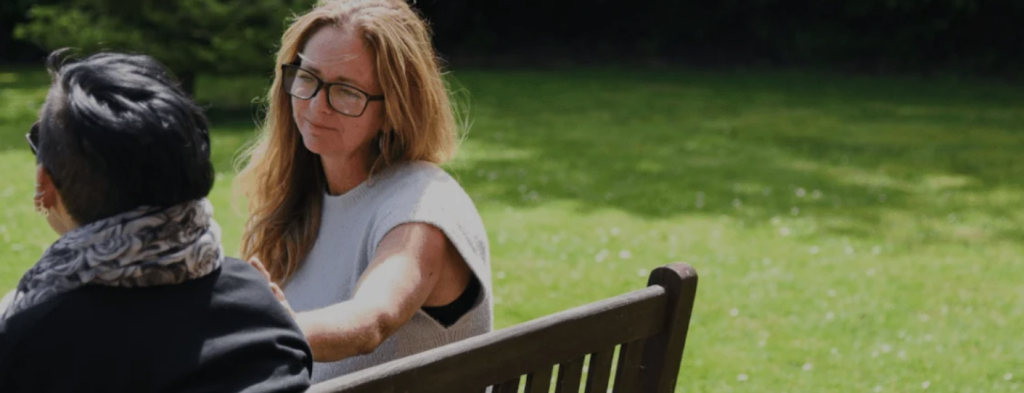Cocaine Rehab Programmes: Treatment Options for Drug Addiction Recovery

Cocaine rehab programmes provide structured, evidence-based support to help you stop using cocaine and start your recovery journey. Quitting alone can be overwhelming, especially with withdrawal symptoms and cravings. Rehab offers a safe, immersive recovery environment with tailored care plans and professional support.
Understanding Cocaine Addiction
Cocaine is a powerful stimulant with a high potential for addiction. Even short-term use can alter brain chemistry and lead to psychological and physical dependence. The cycle of cocaine use and withdrawal can escalate quickly, especially when the drug is used to cope with stress or negative emotions.
Signs and Symptoms of Cocaine Addiction
Signs of cocaine addiction include mood swings, insomnia, anxiety, and hyperactivity. Behavioural symptoms might involve secrecy, financial problems, and withdrawal from social activities. Physical signs include weight loss, nosebleeds (for those who snort cocaine), and rapid heart rate.
People struggling with cocaine addiction may use more than intended, feel unable to stop, or experience problems at work, school, or home. Recognising these patterns is essential to accessing timely treatment.
Causes and Effects of Cocaine Misuse
Cocaine misuse may start due to peer pressure, performance pressure, or emotional distress. Cocaine affects the brain’s reward system, increasing the risk of compulsive use. Long-term effects of cocaine include heart issues, high blood pressure, anxiety, paranoia, and depression.
The effects of cocaine addiction extend beyond health, often damaging relationships, careers, and finances. Early intervention can reduce harm and lead to better outcomes.
Physical and Psychological Dependence
Cocaine dependence involves both physical withdrawal symptoms and psychological cravings. Physical symptoms can include exhaustion, increased appetite, and insomnia. Psychological dependence often manifests as intense urges to use cocaine to cope or feel normal.
These symptoms can make relapse more likely without professional treatment. Rehab programmes are designed to help you avoid these risks and support both aspects of dependence.
Cocaine Rehab Programmes
Effective treatment for cocaine addiction includes detoxification, therapy, and long-term aftercare. The right programme depends on individual needs, severity of use, and existing support systems.
Inpatient Rehab Treatment Centre
Inpatient rehab provides a highly structured treatment environment. Patients live at the rehab centre and receive round-the-clock care, group therapy sessions, one-to-one counselling, and health monitoring.
Inpatient treatment is often recommended for those with severe addiction, frequent relapse, or co-occurring mental health conditions. A typical stay lasts 28 days, but residential treatment can be longer, depending on the treatment plan.
Outpatient Drug Rehab Centres
Outpatient rehab allows people to attend treatment sessions while living at home. These programmes are suitable for those with stable living environments and strong support systems.
Outpatient treatment includes counselling, group therapy, and relapse prevention planning. Flexible scheduling, including evening or online sessions, makes this option accessible for many.
Private and Bespoke Treatment Options
Private rehab clinics offer personalised treatment for cocaine addiction in discreet, comfortable settings. These programmes may include holistic therapies, nutritional support, and enhanced privacy. Private and bespoke treatment is available in both inpatient and outpatient settings.
Costs can vary a lot, from £4,000 to £13,500 for a 28-day stay. However, private rehab often offers shorter waiting times and more individualised care. It you want to know more about rehab prices, you con visit our guide on the costs of rehab.

The Cocaine Recovery Process
Cocaine rehab includes several stages: assessment, detoxification, therapy, and aftercare. Each stage addresses a different aspect of recovery, from physical withdrawal to psychological healing.
Cocaine Detox and Withdrawal Management
Detox is the first step in the cocaine addiction treatment process. Cocaine detox is managed in a safe, supervised environment, typically at an inpatient or specialist detox centre. While cocaine withdrawal symptoms are mainly psychological, they can be intense.
Symptoms include fatigue, agitation, sleep problems, depression, and cravings. Cocaine detox programmes focus on stabilising your physical recovery and preparing you for therapy.
Treatment Modalities for Addiction Treatment
Therapy is at the heart of cocaine addiction treatment. Cognitive behavioural therapy (CBT) is one of the most effective treatments, helping you identify triggers, restructure negative thinking patterns, and develop healthier habits.
Treatment may include:
- One-to-one counselling to explore personal challenges
- Group therapy to foster peer support
- Mindfulness or relaxation training to manage stress
- Creative therapies like art or music therapy
Therapies are tailored to address every aspect of your addiction and build sustainable coping skills.
Coping Strategies and Relapse Prevention
Relapse prevention is an essential part of recovery. Rehab can help you develop practical coping strategies to manage cravings and avoid high-risk situations. Techniques include:
- Identifying and managing triggers
- Keeping emergency contacts close
- Practising mindfulness and self-regulation
- Establishing a structured daily routine
A personalised relapse prevention plan forms a core part of every treatment programme.
Support Networks and Aftercare Programmes
Long-term recovery relies on support networks and structured aftercare. Cocaine rehab centres often provide ongoing care after discharge, including weekly check-ins, therapy sessions, and support groups.
Support groups such as Cocaine Anonymous, Narcotics Anonymous, or SMART Recovery offer peer-led guidance. These groups help people in recovery stay connected and motivated.
Mental Health and Life Beyond Rehab
After finishing a cocaine rehab programme, your mental health and ongoing recovery still need attention. Getting support for depression or other challenges can help you build a more stable, healthy life.
Addressing Co-Occurring Mental Health Conditions
Cocaine addiction frequently co-occurs with mental health conditions such as anxiety or depression. Dual-diagnosis care ensures both substance use and mental health issues are treated together.
Treatment may involve medication, CBT, and group or family therapy. NHS and private rehab services often include mental health assessments as part of the treatment programme.
Success Stories and Ongoing Recovery
Many patients who enter cocaine rehab go on to build fulfilling, drug-free lives. Successful recovery is often supported by continuing involvement in aftercare programmes, setting realistic goals, staying connected to support groups, and using learned strategies to manage stress. These elements help maintain progress and reduce the risk of relapse over the long term.
Focus on Continuity and Long-Term Support at PROMIS
Sustained recovery from cocaine addiction requires ongoing support, practical strategies, and a team that understands the ups and downs. PROMIS blends clinical expertise with a long-term view of recovery, helping people not only stop using substances but also regain a sense of direction and purpose. For many, it’s been a turning point in a much longer journey.
Frequently Asked Questions
Can medication aid in the cessation of cocaine use?
There are no licensed medications specifically for cocaine addiction in the UK, but some medications may be used to manage symptoms of withdrawal or co-occurring conditions.
Are there publicly funded options for cocaine rehabilitation?
Yes. Cocaine rehabilitation can be accessed through the NHS or local authority drug and alcohol services.
What pharmacological treatments are available for addiction?
Pharmacological support may be offered to treat symptoms of anxiety, depression, or sleep disturbances linked to cocaine use. Currently, there are no medications that directly treat cocaine dependence.
How does a drug addiction programme operate?
An addiction programme begins with an assessment and a personalised treatment plan. Treatment includes detox (if needed), therapy, and ongoing support to maintain abstinence and rebuild a healthy lifestyle.
What therapies are integrated in comprehensive cocaine rehabilitation?
Cocaine rehab typically includes CBT, group therapy, motivational interviewing, and sometimes 12-step recovery programmes. Holistic therapies and family counselling are often integrated for a comprehensive approach.
How long is the typical duration for a cocaine rehabilitation programme?
Most inpatient cocaine rehab programmes last 28 days, though some extend to 60 or 90 days. Outpatient treatment can be either shorter or ongoing, depending on the patient's progress and individual needs.
